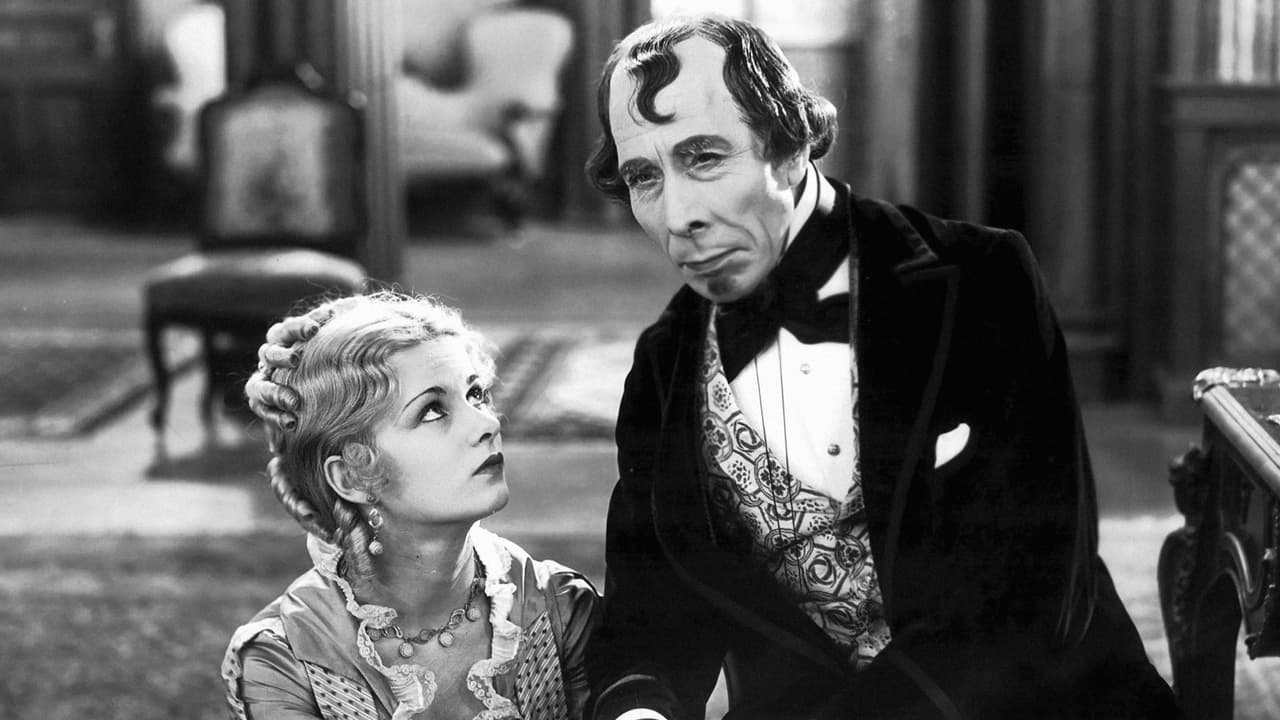



It is a performances centric movie
Horrible, fascist and poorly acted
Good concept, poorly executed.
The tone of this movie is interesting -- the stakes are both dramatic and high, but it's balanced with a lot of fun, tongue and cheek dialogue.
View MoreOne of George Arliss's best known stage roles was portraying the title role in the Louis N. Parker play Disraeli. This is not a biographical film per se, it fictionalizes Disraeli's acquiring the Suez Canal. It was quite the diplomatic coup d'etat in its day, but this version brings in a lovely lady spy in Doris Lloyd in the service Czarist Russia.Throughout the 19th century it was a paradigm of British foreign policy that the Russians were constantly looking to undermine British interests in India. The same theme was found in Rudyard Kipling's Kim.In this film Disraeli has an opportunity to acquire the canal from the Egyptians and the French company that built it which has financially gone belly up. Hidebound banker David Torrance of the Bank of England won't give him the money, he considers Disraeli a disreputable foreigner because of his Jewish ancestry. He goes to a private banker Harry Meyers (Rothschild)played by Ivan Simpson for the money.A lot of games, financial and political, get played out before foxy old Benjamin Disraeli gains the canal for the United Kingdom. Dizzy proves quite up to the challenge at the same time worried about the health of his beloved wife Maryanne, played her by George Arliss's wife Florence.There's also a small romantic subplot involving Disraeli's aide Anthony Bushell and young Joan Bennett. The couple are an attractive pair.This was the second version of this story, Arliss had made a silent version in the early Twenties that was well received.George Arliss won the third Academy Award for Best Actor given out with this performance. Though by today's standards some might consider it hammy, Arliss was of the Victorian classical school of acting and I for one appreciate the care he took in presenting one of his most acclaimed roles of the day.Disraeli is dated and it's hardly history, but it is a fascinating performance nonetheless.
View MoreI just watched DISRAELI on TCM last night, as I was once interested in the work of George Arliss, but no more. I DO enjoy films with historical significance, and political intrigue. However, the closest comparison I can make to this one, is once having tried to read the Biography of Dean Atcheson "Present At The Creation". This may have been Arliss' finest piece, but it was painful to sit through, the story of a man who rarely ever leaves his office, and the endless politico-babble/machinations about the Suez Canal. If you enjoy reading transcripts of the Congressional Record, then by all means, watch this film. Otherwise, the wooden acting, and the inactivity of 90 minutes of watching a man talk, simply put me to sleep. Had it been presented as a more accurate political documentary, I may have found it a bit more interesting. This was not the case. Forget it! (or use it a a sleep aid!) BORING!!!
View MoreWhat inspired writing AND acting!!!! This Blum guy was super, despite the naughty little curl in the middle of his forehead. How close to reality the description of the woman traitor is to real life in the purchasing of the Suez Canal, I don't know, but it makes for an intriguing movie......replete with signaling taps on the table.AS we await tomorrow's presidential election with little hope for any improvement in representation of we the people, I can only get a little comfort from the knowledge that ethics have never bothered politicians in the past. But what DOES bother me is there has been a natural selection of the most brilliant folks leading the leading nations. With someone whose IQ is less than his shoe size, we have no hope..........unless, like the queen, he turns over the government to the Cheneys, and the Republican establishment. Amoral though they are, they aren't dumb. Just so was Disraeli.Whoever wrote the screen play was inspired and the editors didn't try to dumb him down, as opposed to today's movie producers/establishment. It's so very sad to see smart writing relegated to when we the people were considered to have half a brain. The picture of the devotion Disraeli had to his wife is also inspiring.The wooden performances and highly stylized acting were true of the time, and is a hoot in and of itself. See this one!!!!
View MoreLondon, 1874. The old man sits in the great office, endlessly plotting & planning, benevolently scheming for the good of Queen & Empire. Although not too busy to further the romance of two young persons he loves, he puts all his talents & force of will into keeping Russia from dominating Asia & British India. This can only be achieved by thwarting a wily female spy & secretly purchasing control over the Suez Canal from the corrupt Egyptian khedive. Will he fail & suffer political disaster, or triumph & forever make famous the name of Prime Minister Benjamin DISRAELI?Reveling in his most famous film role, George Arliss gives an Oscar-winning acting lesson. Endlessly fascinating to watch, his every twitch of eyebrow or turn of hand is capable of great humor or emotion. He becomes Disraeli, inhabits the fellow, and presents him before our eyes. It's a shame that Mr. Arliss has become obscure & almost forgotten to modern movie fans. It is their loss.Although George Arliss is the main reason to watch any George Arliss film, he is given good support here from Florence Arliss, his real-life wife, playing Disraeli's wife Mary. Also appearing are Doris Lloyd as Mrs. Travers, the convivial spy; Joan Bennett & Anthony Bushell as the two young lovers; and Ivan F. Simpson as a Jewish financier.If the production appears rather stiff & stagy, it must be remembered that this is a very early talkie, and that directors & performers were still adapting to the demands & restrictions imposed upon them by that new tyrant, the microphone. Just keep your attention on Arliss - his acting skills transcend the limitations.It must be mentioned that the film distorts historical reality in two very significant areas. Opening in 1874, it portrays Disraeli as a very happily married man with a loving, elderly wife. The marriage had indeed been an outstanding one, but Mary had died of cancer in 1872. Also, financier Hugh Myers, who bankrolls the Suez scheme, is fictional. It was the Rothschild family who came to Disraeli's aid.
View More